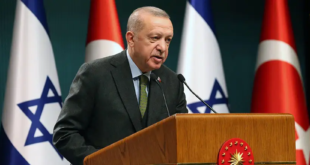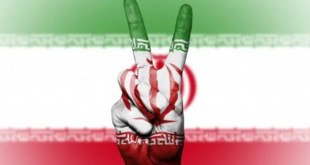UNITED NATIONS (Reuters) – Every year hundreds of thousands of small arms go missing and many wind up in the hands of insurgents in countries like Iraq, Colombia and Afghanistan, a new survey published on Monday said.
The annual report issued by the Geneva-based Small Arms Survey said that as many as 650,000 civilian-owned weapons go missing. This figure excludes the considerable amount of weapons that are diverted — usually meaning stolen or sold on the black market — from government and military stocks.
“Diversion is particularly dangerous because it can channel large volumes of weapons to individuals and groups intent on victimizing civilians,” Keith Krause, head of Small Arms Survey, said at the New York launch of the report.
Krause called on governments to be more vigilant in keeping track of small arms to make sure they are not illegally diverted to insurgents and non-state militant groups.
“We know the risk factors for diversion, the typical scenarios, as well as the methods that can stop much of this activity from occurring,” he said. “Preventing diversion is an area where states can have a significant impact for relatively little investment.”
Among the countries where insurgents or non-state militant groups are benefiting from diverted small arms are Afghanistan, Colombia, Iraq, Sri Lanka, Somalia and Liberia, it says.
The survey does not give an estimate for the arms and ammunition that are diverted from state and military stocks.
However, in the case of northern Kenya, some 40-50 percent of all ammunition on the black market has leaked from Kenyan armed forces, according to the survey.
One of the problems, the report says, is the existence of massive amounts of surplus firearms and ammunition. Although it is possible to destroy such excess stocks, countries often choose to export surpluses rather than destroy them.
“Out of some 200 million firearms worldwide, at least 76 million can be considered surplus,” the report said. Around 430,000 surplus small-arms weapons are destroyed annually.
Two-thirds of some 20-30 million tons of military small arms ammunition worldwide can be considered surplus, it said.
IRAN, NORTH KOREA NOT TRANSPARENT
While some states are responsible exporters, there are often few follow-up checks once arms are delivered to make certain that the arms are not diverted to insurgents or non-state militant groups, the survey says.
The most transparent small arms exporters are the United States, Italy, Switzerland, France, Slovakia and Britain, while the least transparent are Iran and North Korea, it says.
The United States has accused Iran of arming and training insurgents and groups Washington lists as terrorist organizations in Iraq, Lebanon and elsewhere in the Middle East. Iran denies the allegations.
The survey lists a number of examples of suspected successful or attempted diversions of small arms shipments:
– Last year, U.S. authorities tracked Syrian businessman Monzer al-Kassar, whom they suspected of using Nicaraguan end-user papers to buy rifles, machine guns, pistols and surface-to-air missiles to send to Colombia. The plot was foiled and al-Kassar was arrested along with two others.
– An arms broker is suspected of having used a Swiss import certificate in 2005 to get a Bosnian export license to send 9,400 assault rifles and over 24 million rounds of ammunition to Iraq. The Swiss and Belgian governments are investigating.
 Eurasia Press & News
Eurasia Press & News



